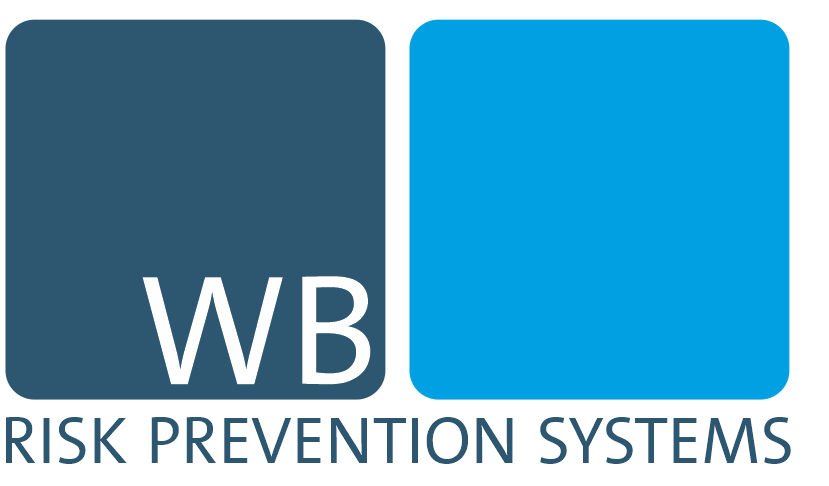In der heutigen digitalen Ära ist Künstliche Intelligenz (KI) allgegenwärtig. Von personalisierten Empfehlungen bis hin zu autonomen Fahrzeugen hat die bahnbrechende Technologie das Potenzial, viele Bereiche unseres Lebens zu verbessern. Doch wie gehen wir am besten mit Künstlicher Intelligenz um?
Nachdem wir in der vergangenen Woche über technische Risiken in Unternehmen geschrieben haben, werfen wir in diesem Blogartikel einen Blick auf den Umgang mit KI, ihre Chancen und Risiken sowie die ethischen Aspekte, die damit einhergehen.
Verständnis der Grundlagen
KI bezieht sich auf Systeme, die menschenähnliche Intelligenz aufweisen können, indem sie Muster erkennen, Probleme lösen und Entscheidungen treffen. Es gibt verschiedene Arten von KI, darunter maschinelles Lernen und tiefe neuronale Netze. Ein grundlegendes Verständnis dieser Technologien ermöglicht es uns, ihre Möglichkeiten und Grenzen zu erkennen. GPT (Generative Pre-trained Transformer) ist z.B. ein KI-Modell, das mithilfe von maschinellem Lernen trainiert wird. Das Training von GPT erfolgt in zwei Hauptphasen: dem Pre-Training und dem Fine-Tuning.
GPT wird durch überwachtes Lernen trainiert, was bedeutet, dass die Vorhersagen des Modells mit bekannten korrekten Antworten verglichen werden. Das Modell passt seine internen Gewichte und Parameter an, um die Genauigkeit der Vorhersagen zu verbessern.
Umgang mit Künstlicher Intelligenz
Unser Nutzen
KI bietet zahlreiche Vorteile, von erhöhter Effizienz und Produktivität bis hin zur Lösung komplexer Probleme. Indem wir die Potenziale von KI erkennen und akzeptieren, können wir ihre Anwendungsbereiche erweitern und uns an die sich schnell verändernden Technologien anpassen. Unternehmen können beispielsweise KI nutzen, um Datenanalysen durchzuführen, Prozesse zu automatisieren und fundierte Geschäftsentscheidungen zu treffen.
Die Menschliche Komponente
Trotz der Fortschritte in der KI ist es wichtig, die menschliche Komponente nicht zu vernachlässigen. KI sollte als Werkzeug betrachtet werden, das die menschliche Kreativität und Entscheidungsfähigkeit unterstützt. Der Faktor Mensch ist entscheidend, um Kontext zu verstehen, ethische Überlegungen einzubeziehen und die Verantwortung für die Entscheidungen, die aufgrund der KI getroffen werden, zu übernehmen.
Verantwortungsvolle Entwicklung und Nutzung
Da KI eine enorme Auswirkung auf die Gesellschaft haben kann, ist eine verantwortungsvolle Entwicklung und Nutzung von großer Bedeutung. Dies umfasst den Schutz der Privatsphäre, die Vermeidung von Diskriminierung und Voreingenommenheit in den Algorithmen, die Transparenz in den Entscheidungsprozessen der KI sowie die Sicherstellung der Sicherheit und des Datenschutzes.
Unternehmen sollten sich nicht darauf warten, dass die Regierung Richtlinien und Standards zum Umgang mit Künstlicher Intelligenz festlegt. Sie sollten sich proaktiv damit beschäftigen und interne KI-Policies entwickeln und diese in ihre Prozesse integrieren. Nur so kann sichergestellt werden, dass der Umgang mit KI-Technologien nicht zu einem Unternehmensrisiko wird.
Sie möchten mehr über KI-Richtlinien im Unternehmen erfahren oder mit uns passende Standards entwickeln? Dann melden Sie sich bei uns:
Termin vereinbaren
Anfrage schicken
Transparenz und kontinuierliches Lernen
Da KI-Technologien weitreichend Anwendung finden und ständig weiterentwickelt werden, ist es wichtig, eine hinreichende Transparenz bezüglich Datenherkunft, Datenverarbeitung und Algorithmen sowie Datenschutz zu schaffen. Der Erwerb von Kenntnissen über neue Entwicklungen in der KI und die Teilnahme an Schulungen und Workshops ermöglicht es Mitarbeitern in Unternehmen, in Körperschaften des öffentlichen Rechtes sowie in NGOs und NPOs auf dem neuesten Stand zu bleiben. Durch den Austausch von Wissen und Erfahrungen können wir gemeinsam an einer positiven Entwicklung und Anwendung von KI arbeiten.
Risiken im Umgang mit Künstlicher Intelligenz
Künstliche Intelligenz birgt verschiedene Risiken, die berücksichtigt und gesteuert werden müssen. Hier sind einige der wichtigsten Risiken und Ansätze, um ihnen entgegenzuwirken:
1. Kontrollverlust
Eine der größten Sorgen ist die Möglichkeit, dass KI-Systeme außer Kontrolle geraten oder unvorhergesehene Handlungen ausführen. Forschung und Entwicklung von sicherheitskritischer KI, die menschliche Werte und Ziele respektiert, sind von entscheidender Bedeutung. Es werden Mechanismen benötigt, um die Auswirkungen von KI-Systemen zu überwachen, zu steuern und im Zweifelsfall zu stoppen.
2. Arbeitsplatzverlust
Die Automatisierung von Arbeitsprozessen durch KI kann zur Arbeitslosigkeit in bestimmten Branchen führen. Es ist wichtig, Strategien zu entwickeln, um die Auswirkungen auf die Beschäftigung abzufedern, wie zum Beispiel Umschulungsprogramme und die Schaffung neuer Arbeitsplätze im Bereich der KI-Entwicklung und -Wartung.
3. Ethik und Verantwortung
KI-Systeme können Vorurteile verstärken oder diskriminierende Entscheidungen treffen. Es ist wichtig sicherzustellen, dass KI-Systeme ethisch verantwortungsbewusst entwickelt und angewendet werden. Dies erfordert klare Richtlinien und Regulierungen für die Verwendung von KI sowie Transparenz bei den Entscheidungsprozessen von KI-Systemen.
4. Datenschutz und Sicherheit
KI-Systeme verarbeiten oft große Mengen an sensiblen Daten. Der Missbrauch oder die Kompromittierung dieser Daten kann schwerwiegende Auswirkungen haben. Es ist entscheidend, dass angemessene Datenschutzrichtlinien und Sicherheitsmaßnahmen implementiert werden, um den Schutz der Privatsphäre und Vertraulichkeit zu gewährleisten.
5. Vertrauen und Akzeptanz
Menschen müssen KI-Systemen vertrauen können, um sie erfolgreich einzuführen und zu nutzen. Transparenz, Erklärbarkeit und Rechenschaftspflicht sind wichtige Aspekte, um das Vertrauen in KI-Systeme aufzubauen. Es sollten klare Kommunikationskanäle und Mechanismen geschaffen werden, um Nutzern die Möglichkeit zu geben, Entscheidungen von KI-Systemen zu verstehen, anzufechten oder zu korrigieren. Es sollte eine angemessene gesetzliche und betriebliche Regulierung der Entwicklung und des Einsatzes von KI geben, um sicherzustellen, dass ethische Standards eingehalten werden und Risiken minimiert werden.
Es ist wichtig anzumerken, dass die Steuerung von KI-Risiken ein fortlaufender Prozess ist, der sich mit der Weiterentwicklung der Technologie ebenfalls weiterentwickeln muss. Es erfordert ein gemeinsames Engagement von Unternehmen und Mitarbeiter:innen, um sicherzustellen, dass KI verantwortungsvoll eingesetzt wird.
Wenn Sie Unterstützung bei der Erstellung einer KI-Richtlinie für Ihr Unternehmen benötigen oder mehr über das Thema erfahren möchten, sprechen Sie uns gerne an.
Kontaktformular
Sie haben Fragen oder möchten mehr über WB Risk Prevention Systems erfahren?
Wir freuen uns auf einen Austausch mit Ihnen. Schreiben Sie uns eine Nachricht oder rufen Sie uns einfach an: +49 234 9041836-30





